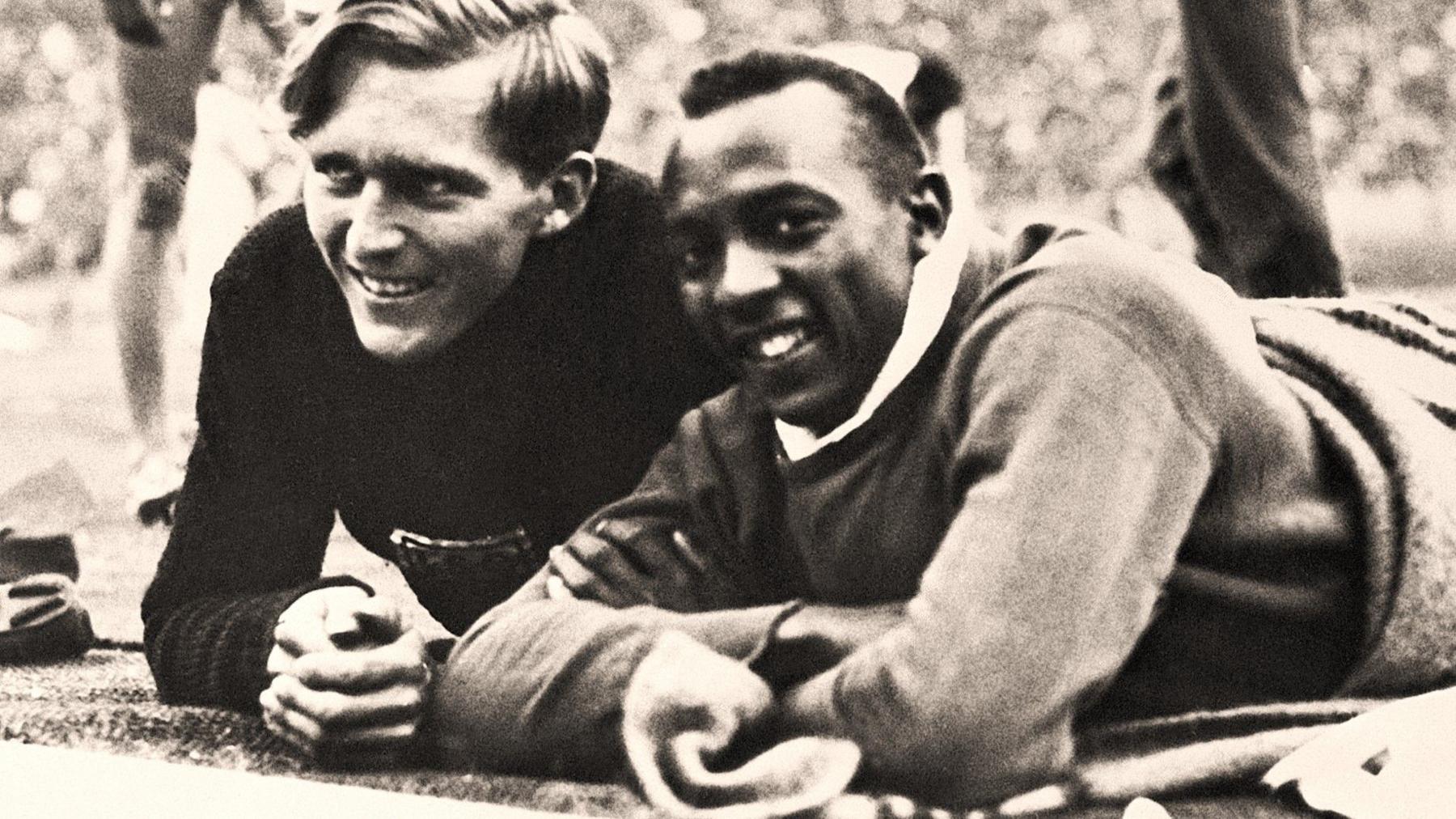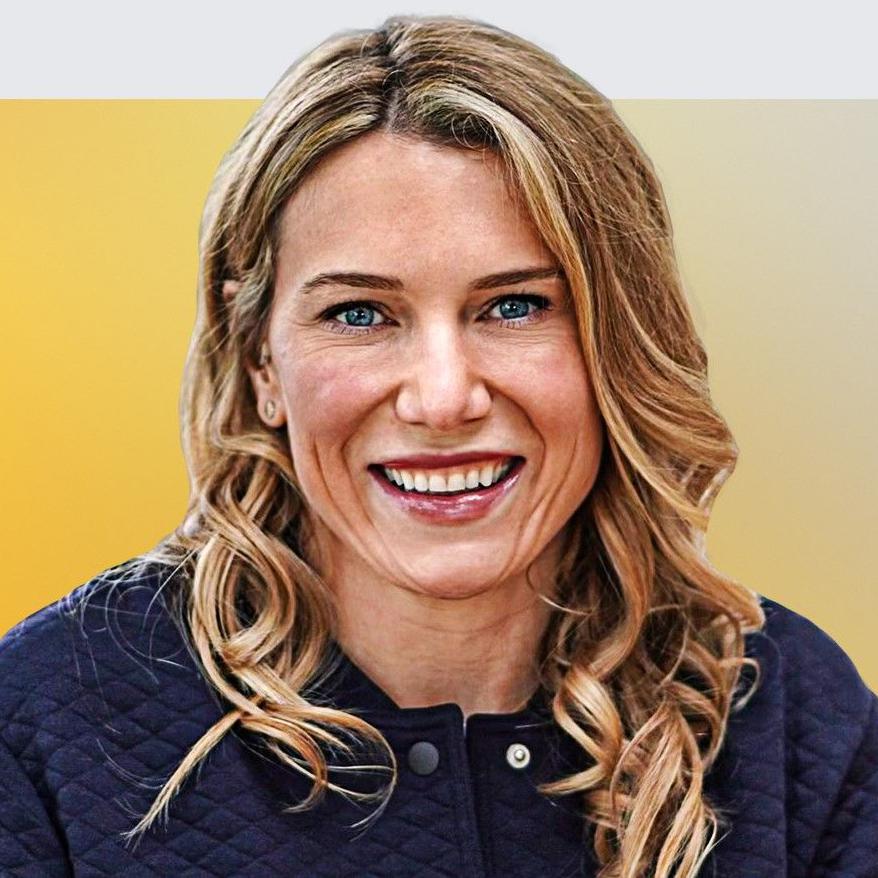
Phoebe Schecter was still getting used to life in a new country.
At the age of 22, she had moved on her own from the United States to the United Kingdom.
She had been living and working in rural Cheshire for about two months and was starting to feel a little homesick, a little lonely.
She then chanced upon an advert on social media and made a bold decision.
"It changed the complete trajectory of my life," she says. "It's been the best decision I’ve ever made."
That decision has taken the 34-year-old into the world of the NFL. It may yet take her to the Olympics.
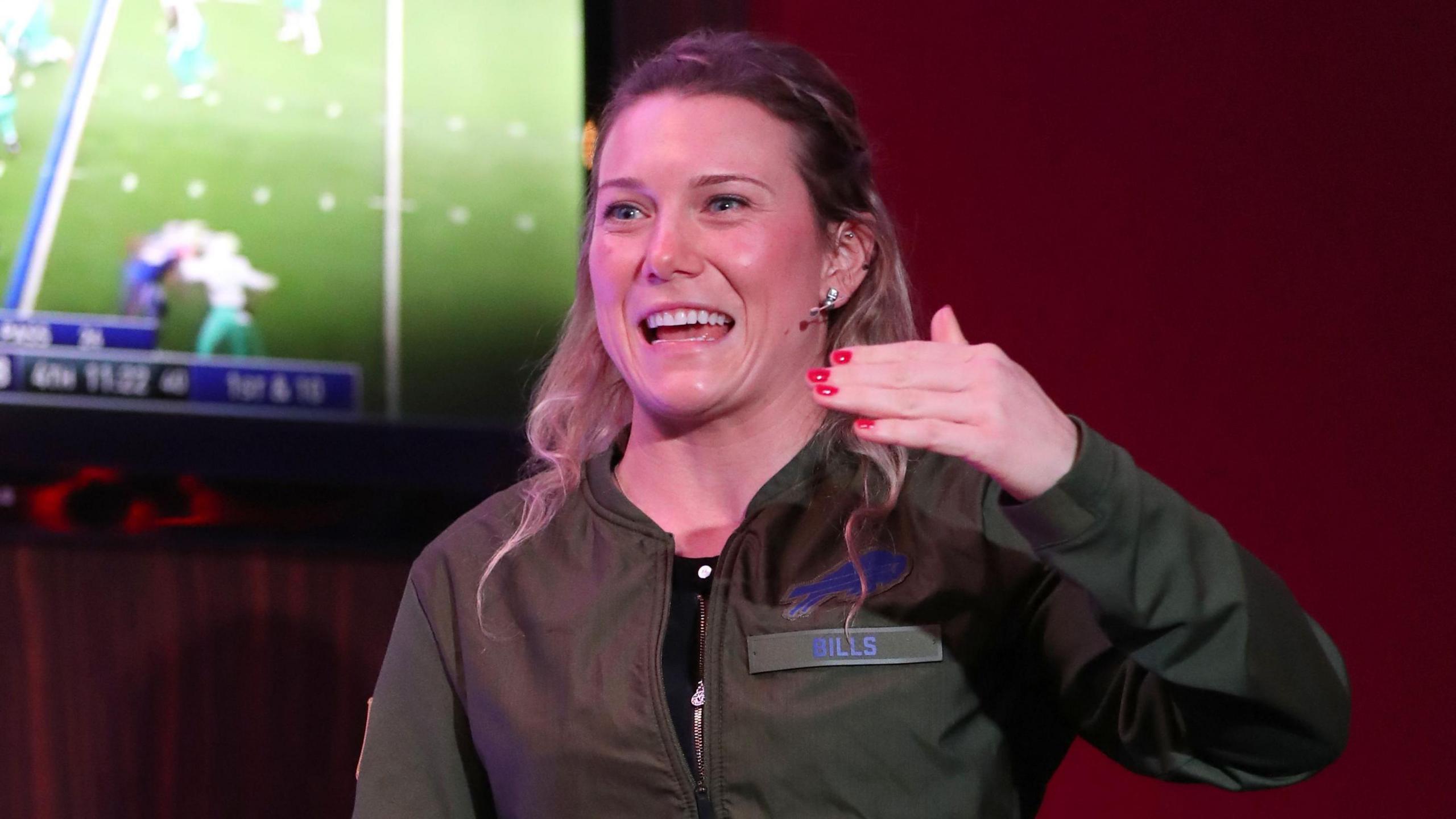
Schecter has become one of the key figures in the NFL's international broadcast operation
Growing up in Connecticut, Schecter's main passion was horse riding and, after studying equine business management, she began working with horses.
Schecter, whose mother is British, made use of her dual citizenship in 2012, accepting a job at an equestrian centre near Congleton and opening out her horizons.
"I needed something new in my life," she says. "I needed a change of scenery, a new challenge."
It was a challenge. Schecter was working six days a week, but during her limited downtime she began scrolling online and saw something about a women's American football team.
In February 2013, she attended a trial in Manchester and a new passion was born.
"I had moved by myself so was definitely missing home," she says. "I really wanted to meet new people and get a bit of American culture.
"I saw the ad and just went for it. When you're out of your comfort zone, you're so much more willing to take risks, and that's kind of what happened with me.
"Because of my accent they thought I could throw the ball, but there was no correlation at all. I had no idea what I was doing.
"But I was enthusiastic, I was passionate. I'd never played a contact sport before but there seemed to be some sort of calling towards it."
Schecter didn't just find a new community, she found a new way of life, which has taken her all over the world.
She has become a role model and a trailblazer, going inside an NFL locker room as a coach and to the Super Bowl sidelines as a broadcaster.
And she could even go to the Olympics as a player, as this week she represents Great Britain at the Flag Football World Championships.
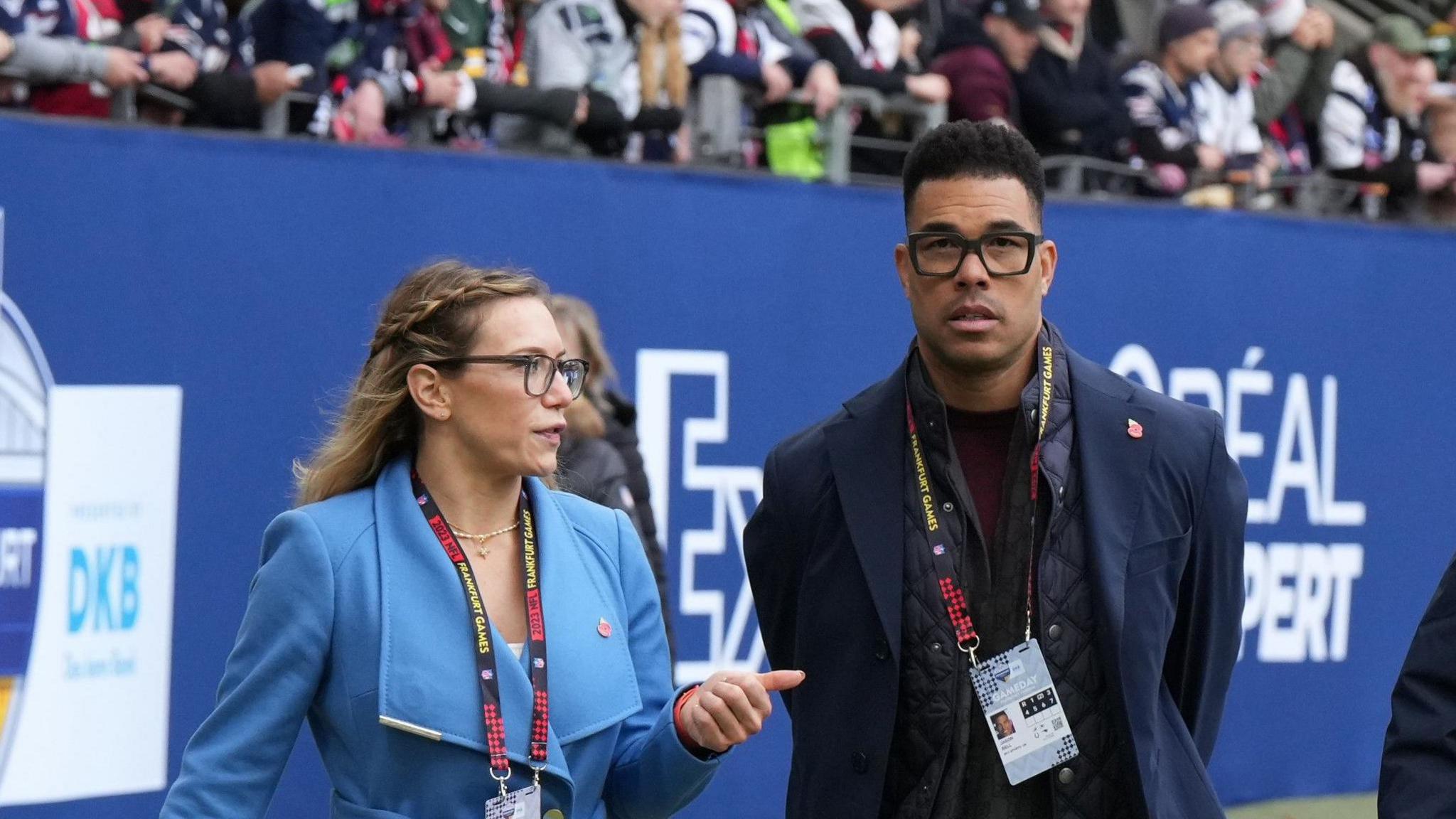
Schecter (left) on the sidelines of one of the NFL's international games in Frankfurt last season, with fellow analyst Jason Bell
More than a decade after seeing that social media ad, Schecter is one of the UK's biggest American football personalities.
But don't let her accent fool you. Her love of American football blossomed in the UK.
"When I was in the States, I watched maybe two Super Bowls," she says. "I hate to say it now, but I thought the sport was so boring. I didn't understand it at all.
"So now, to think I was able to work my way up and go to the NFL, it's kind of one of those pinch-me things, that you don't believe is real."
Soon after the trial in Manchester, Schecter became one of the founding members of the GB women's tackle football team. She also started playing flag football - the non-contact version of the game, which will make its Olympic debut at Los Angeles 2028 - and with the Staffordshire Surge, a men's tackle team.
She took an interest in coaching and in 2016 did the first of three internships at American universities. Then in 2017, she did the first of two internships with the Buffalo Bills, becoming Britain's first female coach in the NFL.
Having not grown up with the game, Schecter says she "came into this whole experience knowing I was behind the eight ball - I had to fast-track my learning".
She created her own glossary to help herself with the game's terminology. She printed pictures of the Bills' coaching staff so she'd know who was who. She joined as many meetings as possible and continually asked questions.
"It was a baptism of fire," she says. "It was definitely a huge learning curve. But being curious has been really helpful for me. I was doing whatever I could to build my experience and absorb as much information as possible.
"I wanted to learn and was so passionate. I had consistent, positive energy - every single day, no matter what the result was at the weekend. It may seem like nothing, but it’s actually really important.
"Once you understand the value you bring to a team, it gives you that boost of confidence of 'I know why I’m here, I know what I can do'."
The NFL is a male-dominated environment but Schecter tried to ignore the fact she was one of the few women clocking in at the Bills' training facility each day.
"If you go into that experience thinking 'oh my gosh, I'm the only woman here', you already have the wrong mindset, your focus is going to be on the wrong thing," she says. "I was there to be the best educator and coach I can be, regardless of my background.
"Some of the guys were saying 'hey, what can't I say around you?' But I said 'in order to get the best version of you, I need you to be your authentic self, to speak freely'. If it's not something you'd say in front of your mother or grandmother, perhaps it's something you shouldn’t be saying in a professional environment anyway.
"But being a woman was also a super power in some ways. Having those inter-personal skills, a lot of my athletes felt more comfortable speaking to me because they grew up in single-mother homes, so to have a female around wasn’t a bad thing.
"They just weren’t used to it in a coaching capacity."
Schecter remembers the moment she truly felt that she belonged.
The Bills' offensive unit had a meeting each morning and everyone would sit in the same seat. When a new player came in mid-season and sat in Schecter’s seat he was told 'you’ve got to get up, this is her seat'.
"That meant so much," she says. "It was only a little thing but the feeling of belonging was huge. I was really a part of that team. They really saw me as one of them."
Schecter has enjoyed a similar feeling in her broadcasting career, which also began by chance.
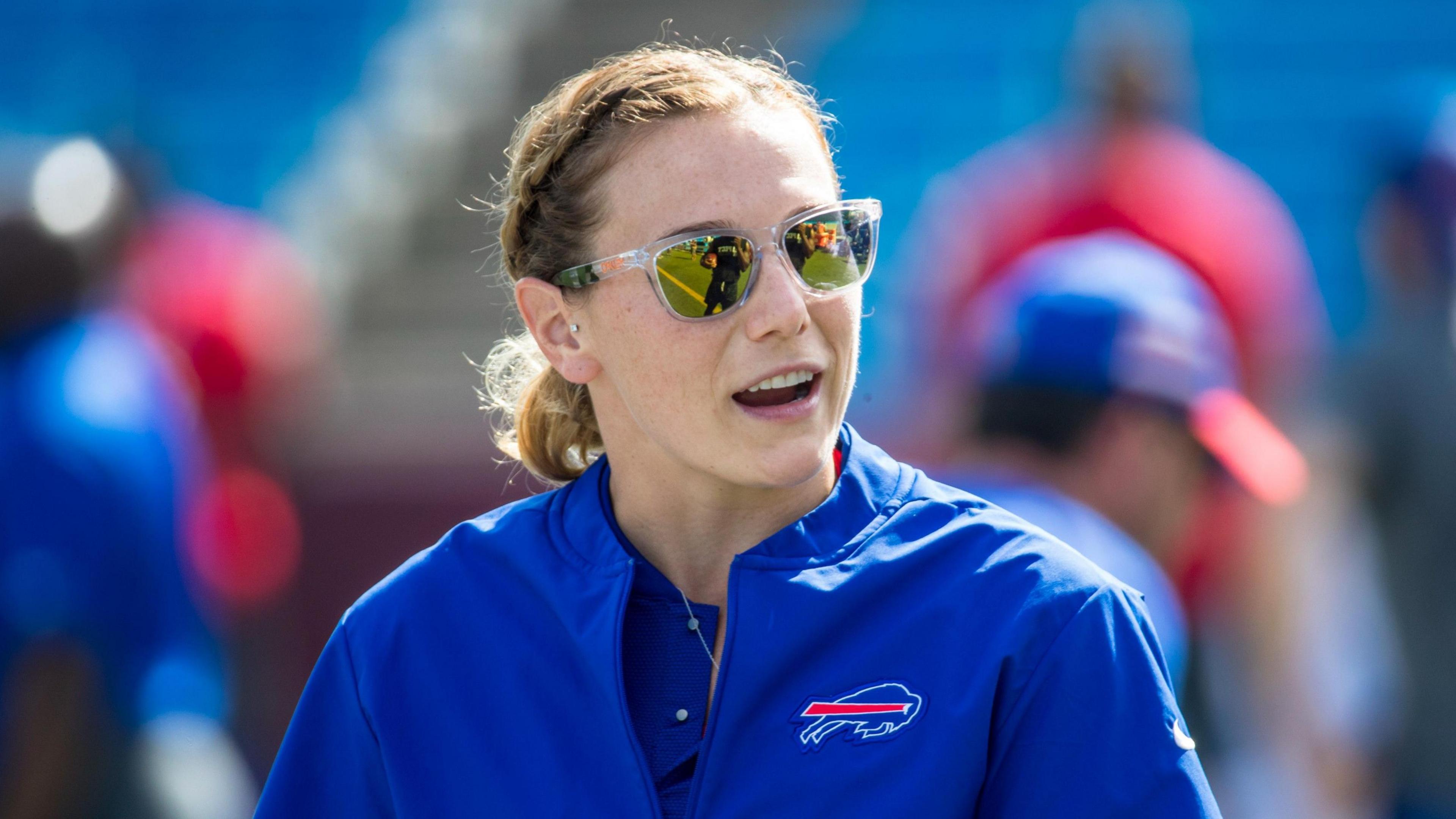
Schecter became Britain's first female coach in the NFL when she interned on the Buffalo Bills' backroom staff
Schecter had already done some radio work when she began appearing on Sky Sports' American football coverage during the Covid lockdown.
When the broadcaster's main NFL host Neil Reynolds was ill over Christmas 2022, Schecter and Hannah Wilkes were asked to present the live Sunday show. It was the first time that women had been on.
Schecter is now a regular analyst, appearing alongside Reynolds and former NFL player Jason Bell.
"Broadcasting was never anything I was looking to do," she says. "I was so nervous to sit on a couch with an ex-player and Neil, who's an NFL legend in the UK, and give my opinion.
"At first in particular, lots of people had lots to say [on social media]: 'What does she know? Why is she here?' I would never want someone to think: 'Oh, she’s been put there because she’s a woman.'
"So when Neil or Jason back up what I say, all those that perhaps don't believe in me see that and are like: 'Yeah, you’re right.' That's been massive for my development, to help build my confidence and show the audience 'this girl knows what she’s talking about'."
Besides criticism on social media, Schecter faced hostility at a coaching event where an older male coach said she didn't deserve her position with the Bills.
"He said he'd been working for something like that for so long," she says. "In the past, something like that would probably have gotten to me but already, by his attitude towards me, he showed that he wouldn't be the right fit for a professional NFL team.
"They just want the best person possible and whoever will help them win.
"The NFL is trying to get more females involved in the sport in general, but you still have to earn your place - you still have to prove that you belong, to be given these opportunities."
Because of Schecter’s attitude and work ethic, she continues to earn them.
"You can never learn enough," she says.
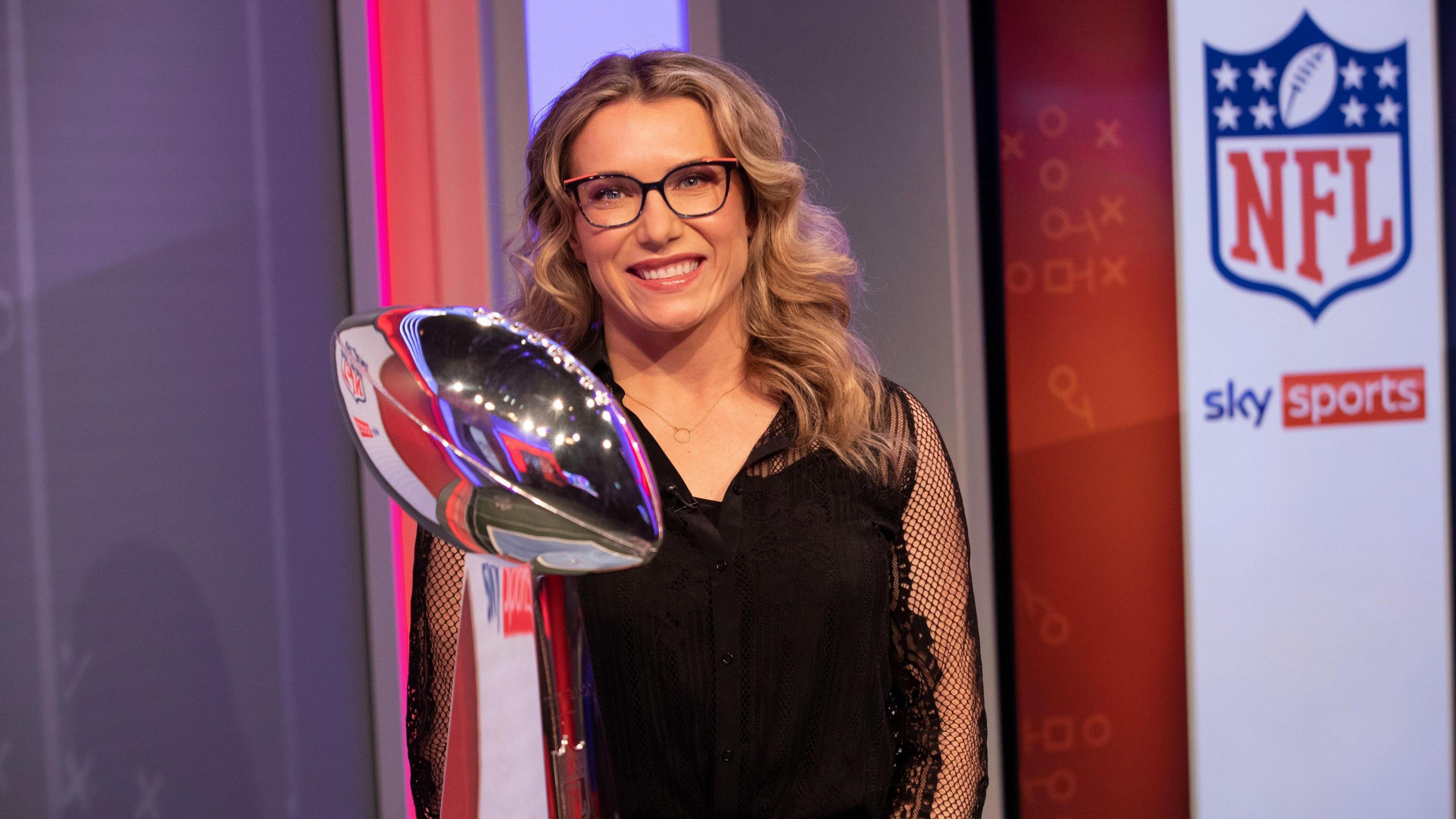
Schecter, who will write a BBC Sport column during this year's NFL season, has developed her media career alongside playing and coaching
Schecter delivers coaching clinics across Europe; she is a committee member for both the British American Football Association (Bafa) and International Federation of American Football (Ifaf); she is a global flag football ambassador for the NFL.
"My schedule is nuts," she says. "It's a lot, but I love it. I love the energy. You've got to take advantage of every minute in the day.
"Before I moved to the UK, if anyone said I'd ever be doing any of what I'm doing now, or be half the person I am now, I wouldn't have believed them. It's been absolutely insane.
"The sport has completely changed my life, and all I want to do now is give back, as much as possible."
Having played her last tackle game for Great Britain earlier this month, she is now preparing to represent them at the Flag World Championships in Finland.
Flag is the most inclusive and accessible form of American football. According to Ifaf, it is played by about 20 million people in more than 100 countries and the rapid growth of the women's game was key to it being chosen as one of five sports to be added to Olympic programme for 2028.
Great Britain's women's team, who won the 2023 European Championship, are ranked fourth in the world.
They make their World Championships debut on Tuesday (12:00 BST), taking on Czech Republic in their opening group game before meetings with Israel and Panama.
The top three teams in the pool will progress to the last 16.
The US are the world’s top-ranked team - followed by Mexico and Japan - having won the past two World Championships, but they were beaten 39-6 by Mexico in the final of the 2022 World Games.
A top-seven finish will ensure Great Britain a place at the 2025 World Games in China, and a strong performance in Finland would strengthen their claim for better funding.
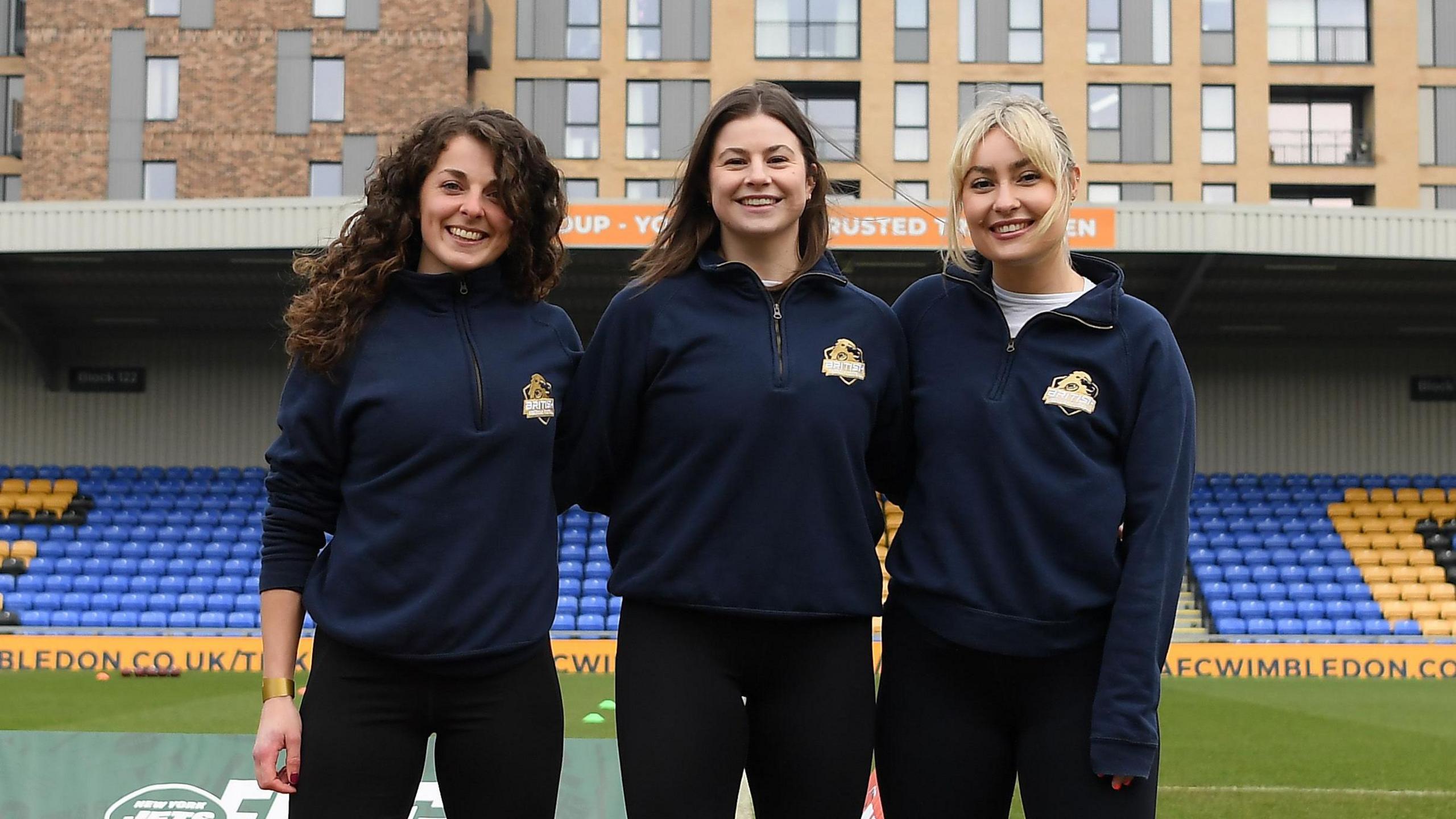
Kate Bruinvels, Ellie Thorpe and Kellie Barrett, three of Schecter's Great Britain flag football team-mates
Great Britain coach Dean Whittingslow says it costs "thousands each year for players to train, participate and travel", and the GB programme launched a crowdfunding page to help cover team costs for the World Championships.
Schecter is one of the longest-serving members of the 12-player squad in Finland.
While she discovered the sport at that trial in Manchester, many of her team-mates first tried it at school or university. A few of the others previously played soccer, netball or even ultimate frisbee.
Schecter has also added 'scout' to her many roles. A conversation with one of the NFL's flag football suppliers revealed that his daughter is not only a flag quarterback, but also a British passport holder.
Brittany Botterill came aboard and was named the tournament Most Valuable Player as Great Britain became European champions last year. The newest member of the team is Emily Kemp, who previously played flag at college in the US.
That makes it three US-born players on the GB squad, but coach Whittingslow is "not specifically looking for talent in America, that's happened naturally". He is also not focused on recruiting athletes from certain sports.
"There is plenty of interest in flag football, and there are transferable skills from a multitude of other sports," he says. "At this point, all options are open. It's about bringing in the best talent to get the best output on the field.
"We've got a really strong team right now. Between now and then [2028], some of the players are likely to age out, but we've set up a youth pathway and if we get the right level of funding, investment and support over the next four years, I've no doubt we will have every chance of winning a medal."
Schecter, who plays as a centre, remains a key member of the GB team. Whittingslow says she "puts her body on the line, always gives her all and demands the same from those around her".
She could be one of those to 'age out' and lose her spot before LA 2028. She is philosophical about her chances.
"I could potentially play at 38, but then I think, 'if I'm still playing then, have we done the right things, in terms of development?'," she says.
"There should be better, faster, stronger people coming to take my spot. That’s how we all get better, ultimately. But if I’m not there as an athlete, I would absolutely want to be there as a coach. Coaching is the root of who I am."
Previously on Insight
- Published22 August 2024
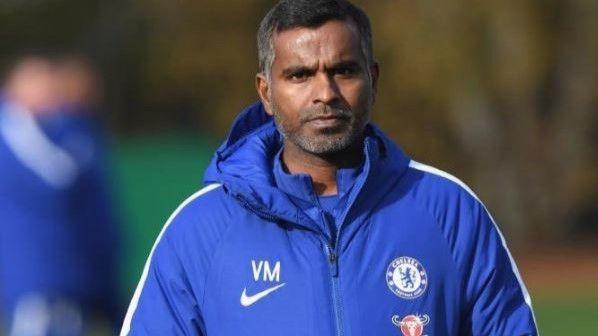
- Published20 August 2024
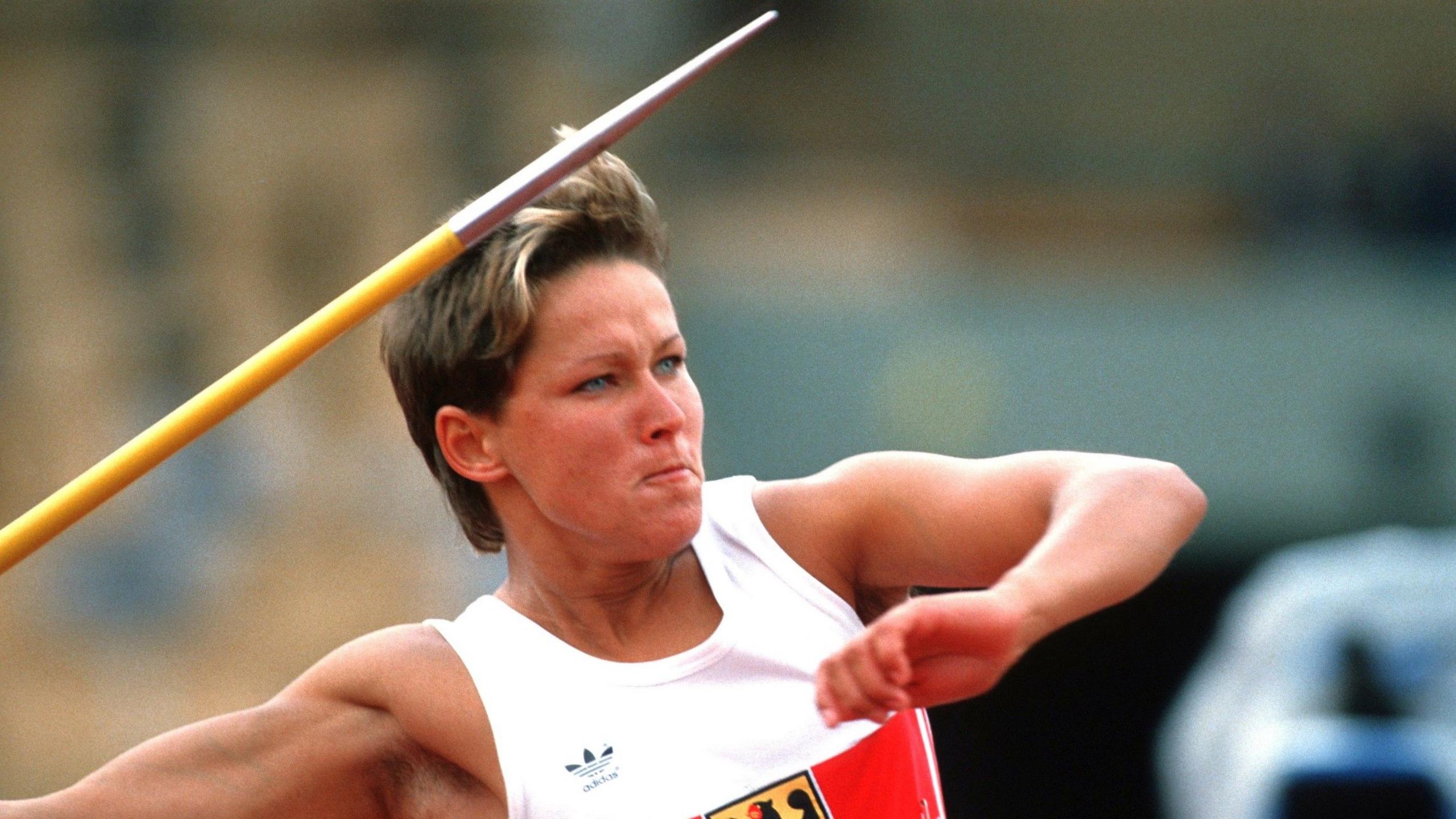
- Published15 August 2024
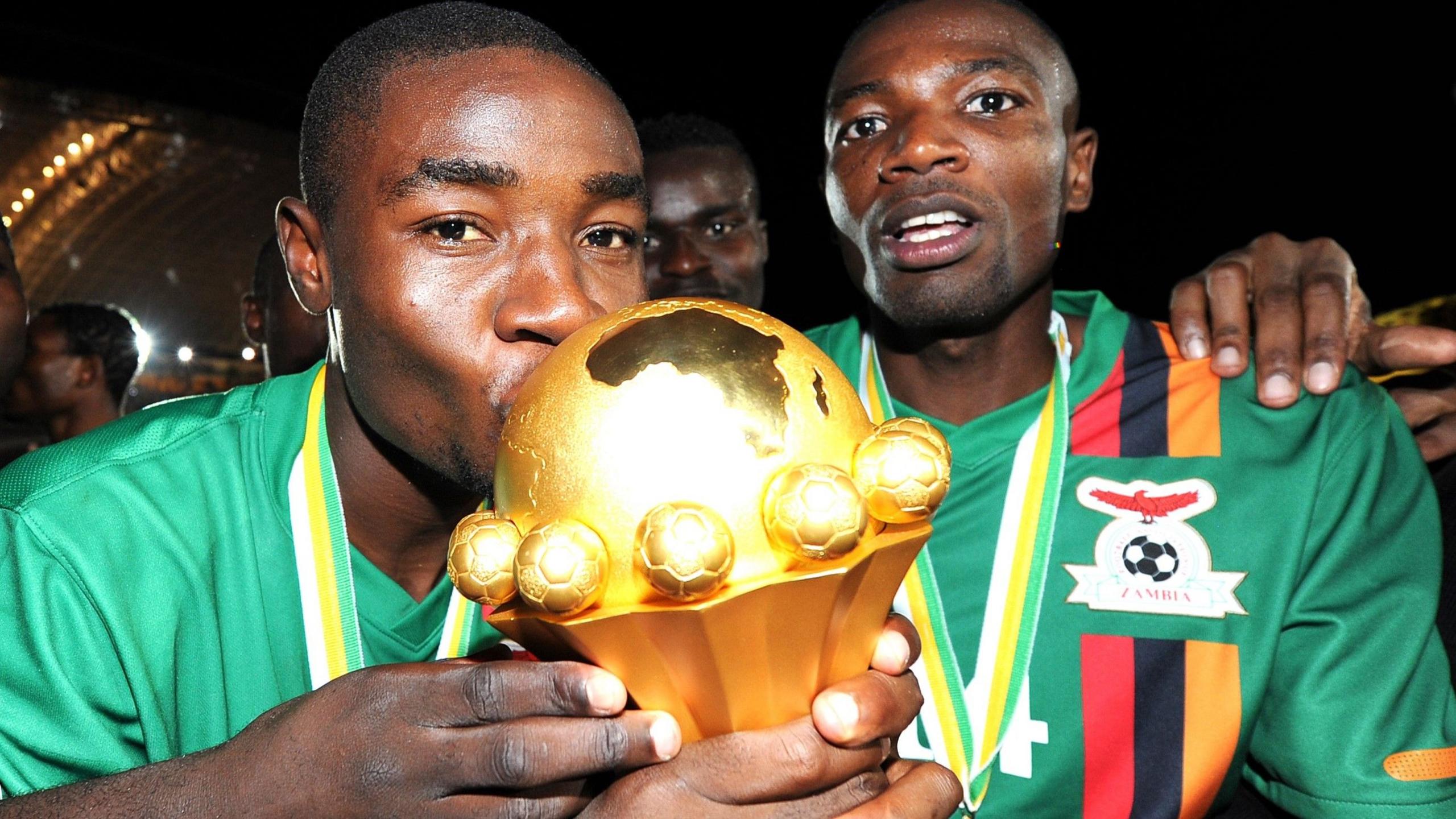
- Published13 August 2024
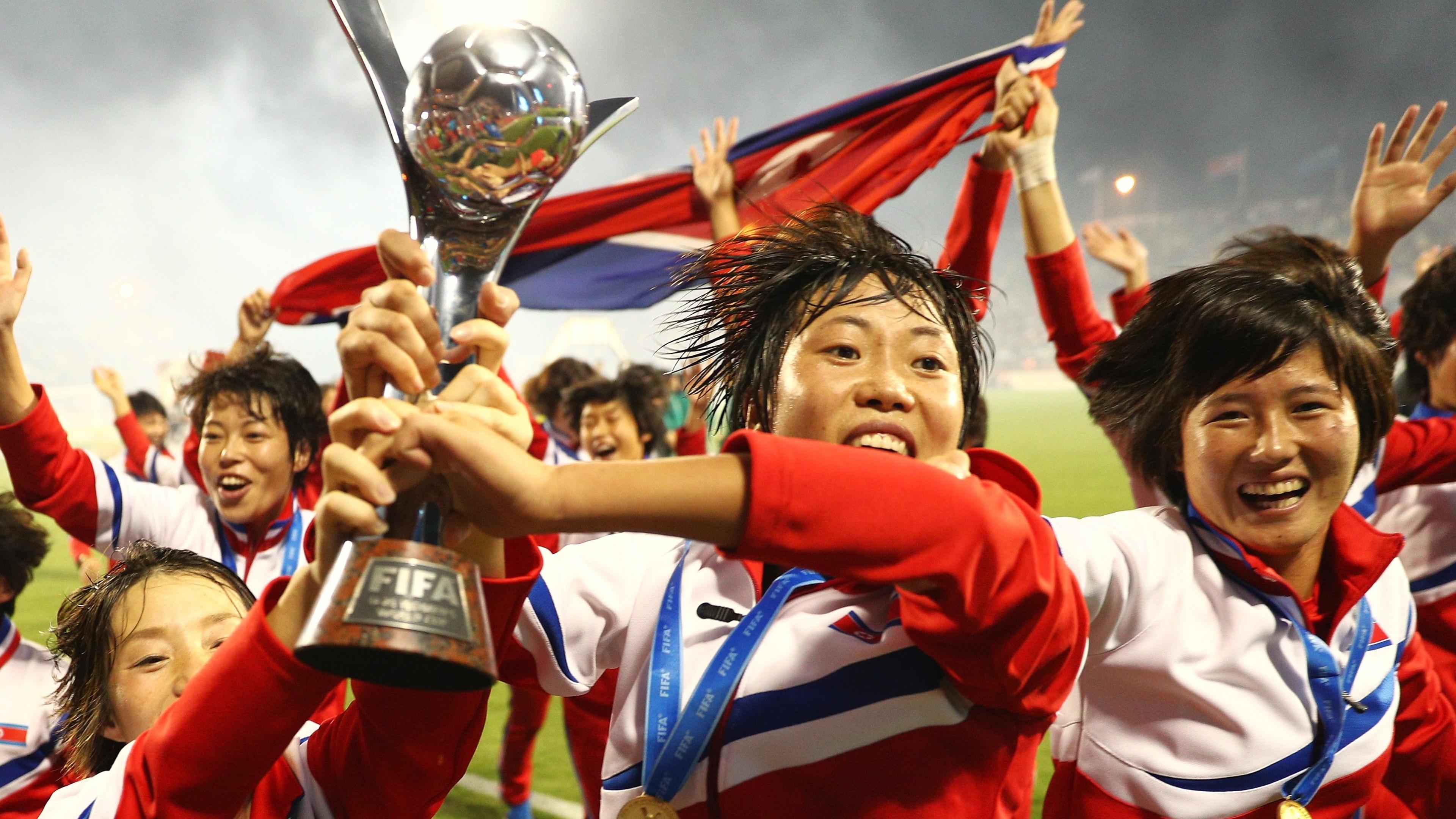
- Published17 July 2024
